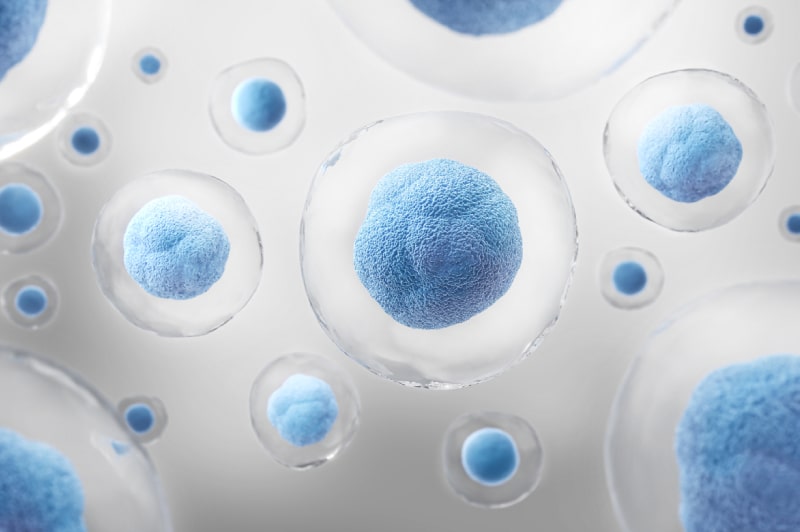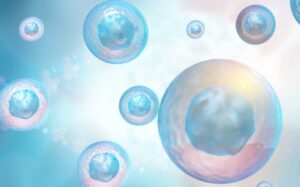At the 70th annual meeting of the Society for Reproductive Research (SRI)
- Therapies for women with premature ovarian failure, the treatment of uterine fibroids with encouraging results, and the possibility of silencing extra chromosomes have won the favour of the SRI scientific committee, recognising the quality and innovation of these studies.
- Poor oocyte quality is currently one of the main problems limiting reproductive success. In this sense, IVIRMA researchers have identified a promising therapeutic strategy to improve oocyte quality, for which there is currently no viable treatment.
- Another of the studies presented by IVIRMA at this meeting identifies the trace elements associated with better reproductive outcomes in IVF patients.
BRISBANE, 27 MARCH 2023
In the continuous race to offer the best solutions to women and couples on their path to parenthood, IVIRMA is once again taking part in the congress of the Society for Reproductive Research (SRI). In its 70th edition, this year held in Brisbane (Australia), almost twenty papers were presented by IVIRMA at the scientific gathering which took place from 21 to 25 March, where the world leader in reproductive medicine won three important awards in recognition of its research work.
“Research has been guiding our progress for more than 3 decades and it is this effort to constantly advance in the knowledge of the field we work in and the discovery of the best options for our patients that has enabled us to become a benchmark in the assisted reproduction sector and to achieve the best results in our treatments. Thanks to this, today we continue to study, learn and progress, so that tomorrow any fertility problem can be solved with the help of science; and forums such as this one provide a space for the exchange of knowledge to outline the current focal points that will mark the future of our profession”, said Dr. Juan Antonio García Velasco, IVIRMA’s scientific director.
One of these focal points looks at therapies for women suffering from premature ovarian failure (POF), which often prevents them from being able to conceive with their own eggs. In this regard, the IVI Foundation’s Endometrial Stem Cell Biology and Uterine Bioengineering group, led by Dr. Irene Cervelló, presented the study ‘Bioengineering an Ovarian-Specific ECM Hydrogel to Treat Premature Ovarian Failure’, awarded the President’s Presenter’s Award, the highest recognition granted by the scientific society.
“The results of the study are very promising, showing that the hydrogel combined with growth factors improved the number of mature eggs obtained in mice, compared to animals that did not receive the treatment, or received alternative treatments. Therefore, this work could become a therapeutic option for women with POF”, explained Dr. Cervelló.
Another reproductive problem that prevents pregnancy in women is related to uterine fibroids. In this sense, the work supervised by Dr. Hortensia Ferrero, a researcher at the IVI Foundation, won the favour of the SRI scientific committee, which also decided to grant her the President’s Presenter’s Award.
“Uterine fibroids are the most common tumor in women of reproductive age, affecting 70% of women worldwide. The results of our study ‘Doxercalciferol Decreases Uterine Fibroid Growth Rate Through the Regulation of ECM Synthesis and Cell Proliferation’ highlight the potential of vitamin D analogues, specifically Doxercalciferol, as a therapeutic option for the treatment of uterine fibroids in patients who wish to maintain their fertility. In this sense, Doxercalciferol reduces the growth of fibroids by 42%, and does so mainly by regulating the expression of genes involved in cell proliferation and extracellular matrix production, the two main pathways for the progression of this type of tumor”, said Dr. Ferrero.
Another of the studies to receive an award in this context, ‘Targeted Elimination of Human Chromosome 21 (HSA21) in Adult and Embryo Stem Cell Lines Using a Novel CRISPR-Cas3 Genome-Editing Tool’, analyses embryos’ developmental behaviour, beyond the day of transfer, in cultures prolonged in the laboratory until approximately day 12, depending on whether they are euploid (chromosomally normal), trisomy 21 (with an extra chromosome 21 or Down’s Syndrome) or monosomic 21 (with one less chromosome 21). The aim of this work is to discover when developmental differences appear in the embryos’ morphology and in the expression of their chromosomes.
“Knowing when these differences begin will help us to see if it is possible to silence the extra chromosome in some embryos using CRISPR technology in human cell lines, in order to attempt to do the same in the human embryo in a second phase”, stated Dr. Inma Sánchez, gynaecologist at IVI Barcelona and supervisor of the study.
A promising way to improve oocyte quality in women
Poor oocyte quality is currently one of the main problems limiting the success of assisted reproduction treatments. This decline in oocyte quality has been mainly associated with increasing maternal age, as women are having their first child increasingly late in life. Another cause is the side effects that chemotherapy produces at the reproductive level in oncological patients. Thus, an increase in oxidation levels in the oocyte seems to be one of the mechanisms involved in both types of patients.
“In our awareness of this, our study ‘Nicotinamide Mononucleotide supplementation improves oocyte quality in chemotherapy induced ovarian damage mouse models’ we evaluated whether oral supplementation with nicotinamide mononucleotide (NMN) can reverse the decrease in oocyte quality associated with chemotherapy-induced damage in an animal model. This is the first time that the role of NMN has been investigated against the damage caused by cancer treatments,” said Dr. Sonia Herraiz, researcher at the IVI Foundation and supervisor of the study.
NMN is a precursor of the active substance Nicotinamide Adenine Dinucleotide (NAD+), a key molecule in multiple biological processes, with antioxidant potential.
“After the in vitro fertilization process, we observed higher fertilization rates and better embryo development in the treated animals. In conclusion to these results, we can indicate that treatment with NMN is a promising therapeutic strategy for improving oocyte quality, for which there is currently no viable treatment,” added Dr. Herraiz.
Trace elements as an influential factor in reproductive outcomes
Lower fertility rates have been observed in recent decades, mainly in industrialized regions, which has increased the need for assisted reproductive technologies. Socio-economic, environmental and lifestyle factors, including diet, have been identified as factors responsible for this decline in fertility.
Following on from this, the study ‘Positive association between essential trace elements in female biological matrices and IVF outcomes in euploid single embryo transfer cycles’ identifies the trace elements associated with better and worse reproductive outcomes in women undergoing in vitro fertilization treatments.
“Our data showed that a higher concentration of trace elements, such as copper and the copper/zinc ratio in follicular fluid and plasma, and manganese in plasma, was significantly associated with higher ovarian response to hormonal stimulation and better embryological outcomes in IVF treatment. In contrast, higher lithium concentrations in follicular fluid were associated with lower ovarian reserve, lower response to ovarian stimulation and lower fertilization rate in IVF treatment. These results suggest a direct impact between trace element levels and IVF treatment outcomes,” concluded Dr. Francisco Domínguez, researcher at the IVI Foundation and supervisor of the study.





